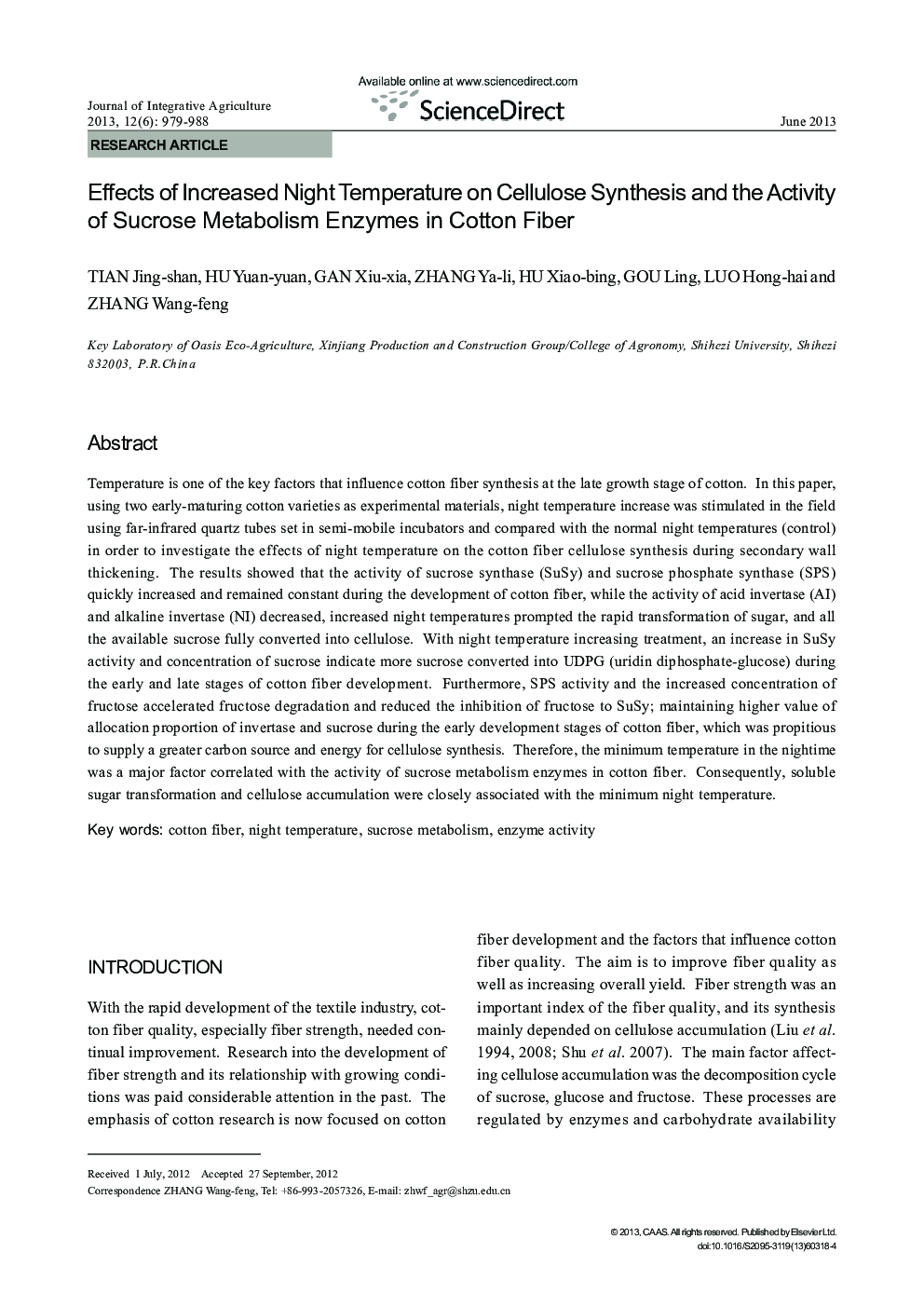| کد مقاله | کد نشریه | سال انتشار | مقاله انگلیسی | نسخه تمام متن |
|---|---|---|---|---|
| 4495051 | 1318740 | 2013 | 10 صفحه PDF | دانلود رایگان |

Temperature is one of the key factors that influence cotton fiber synthesis at the late growth stage of cotton. In this paper, using two early-maturing cotton varieties as experimental materials, night temperature increase was stimulated in the field using far-infrared quartz tubes set in semi-mobile incubators and compared with the normal night temperatures (control) in order to investigate the effects of night temperature on the cotton fiber cellulose synthesis during secondary wall thickening. The results showed that the activity of sucrose synthase (SuSy) and sucrose phosphate synthase (SPS) quickly increased and remained constant during the development of cotton fiber, while the activity of acid invertase (AI) and alkaline invertase (NI) decreased, increased night temperatures prompted the rapid transformation of sugar, and all the available sucrose fully converted into cellulose. With night temperature increasing treatment, an increase in SuSy activity and concentration of sucrose indicate more sucrose converted into UDPG (uridin diphosphate-glucose) during the early and late stages of cotton fiber development. Furthermore, SPS activity and the increased concentration of fructose accelerated fructose degradation and reduced the inhibition of fructose to SuSy; maintaining higher value of allocation proportion of invertase and sucrose during the early development stages of cotton fiber, which was propitious to supply a greater carbon source and energy for cellulose synthesis. Therefore, the minimum temperature in the nightime was a major factor correlated with the activity of sucrose metabolism enzymes in cotton fiber. Consequently, soluble sugar transformation and cellulose accumulation were closely associated with the minimum night temperature.
Journal: Journal of Integrative Agriculture - Volume 12, Issue 6, June 2013, Pages 979-988